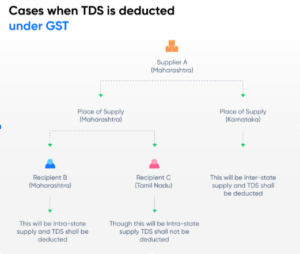Indian investors have the option of investing in the US stock market. Tax implications for Indian investing in US stock market continue to be a major concern for Indian investors looking for overseas stock market investment opportunities to diversify their portfolios. However, as the number of Indian investors in the US stock market grows, we believe that a detailed discussion of the tax obligations that you must meet is necessary.
The tax policies are relatively simple for Indian investors looking for overseas investment opportunities. Tax liabilities for Indian investors in the US stock market are determined by two factors: the nature of the earnings and, second, the investor’s residency in India. The tax implications for each category will be discussed separately.
Nature of Earnings
Earnings from stock investments come from two sources: dividends and capital gains from stock sales. Here’s how taxes will affect your overall return on investment in the US stock market.
Dividend tax: The tax is divided into two parts, one in the United States and one in India. If you invest in stocks or ETFs that pay dividends in the United States, you must pay dividend tax at a flat rate of 25%. According to a tax treaty between India and the United States, Indian investors must pay a lower tax rate than foreign investors. It also prevents double taxation under the India-US Double Taxation Avoidance Agreement (DTAA).
Because the tax is withheld at the source, you will receive 75% in cash. The dividend is taxed in India under the dividend tax policy, which became applicable to all types of dividend earnings in India beginning in financial year 2020-21.
However, thanks to the DTAA agreement, you can avoid double taxation and adjust the tax paid in the United States with the tax liability in India.
The capital gain tax is the second type of tax to be concerned about. A capital gain arising from the sale of any asset in India is subject to capital gain tax – long-term and short-term, depending on the investment period. A capital gain tax is also imposed on stock trading in the United States.
Capital gain tax: When you sell stocks, ETFs, or other assets in the US market, you incur capital gain. It is the difference between the sales price and the acquisition cost. Fortunately, there is no capital gains tax in the United States. However, it becomes taxable in India.
There are two kinds of capital gains taxes.
Long-term capital gain tax: If you hold an investment in a foreign company for more than 24 months, it is subject to a 20% long-term capital gain tax.
Short-term capital gain: If you sell stocks before 24 months, you will have a short-term capital gain in India. The amount of tax depends on your tax bracket.
Taxes Determined by Residence
If you are a non-resident Indian, your tax implications will differ from those of a regular residential Indian.
You can be classified as a resident and ordinarily resident (ROR), a resident but not ordinarily resident (RNOR), or a non-resident Indian based on your residential status (NRI). As a result, the tax implications will differ.
Global income, including earnings from stock investments in the United States, is subject to taxation for RORs or ordinary residents under the Income Tax Act.
If you are an RNOR or NRI, your overseas income is taxable only if you receive it in India or it is generated by a business controlled by an Indian corporation.
Conclusion
Indian investors’ portfolios can become more diverse by making investments in US equity markets. When investing in these, it’s crucial to understand the dangers involved, the potential gains, and the tax ramifications. Indian investors would get more clarity and comprehend the net profits that can be earned after taxes if they are aware of factors such as what the tax implications will be, how the investment will be taxed, whether there are any exemptions, etc.
FREQUENTLY ASKED QUESTIONS: –
Can I purchase American stocks from India?
It is true that you can make direct or indirect investments in US stocks from India. If you choose direct investment, a broker’s help is required to open a trading account and a US bank account. Mutual funds and exchange-traded funds (ETFs) can be used to invest indirectly in US companies.
How much may I invest from India in US stocks?
According to the Liberalized Revenue Scheme of the RBI, Indian investors are only permitted to invest a maximum of Rs. 1.9 crores in US stocks each fiscal year.
Why should an Indian citizen invest in US stocks?
Investors can benefit from stability because US indices are believed to be less volatile than Indian indices. Some of the top US stocks not only provide benefits for diversification but also give investors access to innovation-driven development.
Do US equities cost more to invest in than Indian stocks?
In particular, if an investor has a limited investment horizon, US equities are thought to be more expensive than Indian stocks because investing in US companies entails greater commission and fee charges.
What aspects should Indian investors consider before purchasing US stocks?
Indian investors must be aware of the US regulatory environment, risks associated with foreign exchange, taxation, charges, and limitations while investing in US stocks.
This article is merely a general guide meant for learning purposes only. K M Gatecha & CO LLP is not liable for any loss or harm incurred by readers who take action based on the information provided in this article. “Please keep in mind that the opinions expressed in this Blog/Comments Section/Forum are clarifications intended for the readers’ reference and guidance as they investigate further on the topics/questions raised and make informed decisions. These are not intended to be investment advice or legal advice.” All the instructions, references, content, or documents are for educational purposes only and do not constitute a piece of legal advice We do not accept any liabilities whatsoever for any losses caused directly or indirectly by the use/reliance of any information contained in this video or for any conclusion of the information. Prior to acting upon this content, you’re suggested to seek the advice of your financial, legal, tax, or professional advisors as to the risks involved may be obtained and necessary due diligence, etc may be done at your end.




